Threatened and endangered species of Florida Bay include:
- Sea Turtles
- American Crocodile
- American Alligator
- Manatee
- Wood Stork
“Endangered” species are in danger of becoming extinct throughout all or the majority of its range while a “threatened” species is one that is likely to become endangered in the near future. Each species must be listed on the Federal list of endangered and threatened species before it can receive protection under the Endangered Species Act. The ESA was enacted in 1973 to conserve and set up recovery plans for listed species and associated habitats.
Sea Turtles
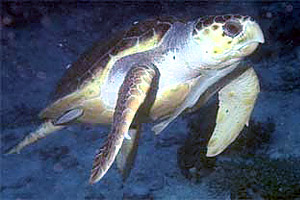
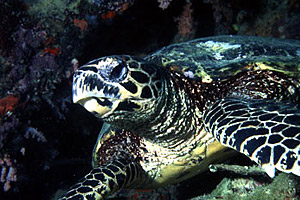
Of the four sea turtles found in Florida Bay, the Atlantic ridley sea turtle (Lepidochelys kempii), and hawksbill sea turtle (Eretmochelys imbricata) are endangered species. The threatened green sea turtle (Chelonia mydas) and loggerhead sea turtle (Caretta caretta) are by far the most commonly seen sea turtles.
American Crocodile and American Alligator
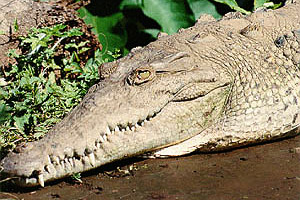
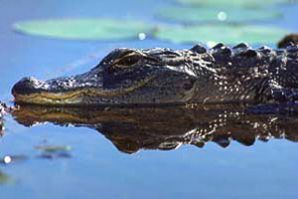
Approximately half of the U.S. population of the federally listed endangered American crocodile (Crocodylus acutus) nest on islands within Florida Bay. South Florida is the only location worldwide where crocodiles and alligators coexist.
Distinguishing characteristics of the crocodile include a pointed snout and grayish-green coloration while the alligator has a rounded snout and black in color. The American alligator (Alligator mississippiensis) is considered a threatened species due to its similarity to the American crocodile.
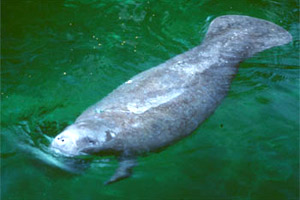
Manatee
Federally listed as endangered, the manatee (Trichechus manatus laterostris) is a large, slow-moving, plant-eating aquatic mammal. Its distribution is determined primarily by water temperature as manatees cannot survive long in water below about 63 °F (17 °C).
In Florida, manatees often migrate into warm spring-fed rivers or near the heated discharges of power plants during winter months. As offshore waters warm in late spring and summer, manatees move out into shallow fresh, brackish, and seawater habitats.
Wood Stork
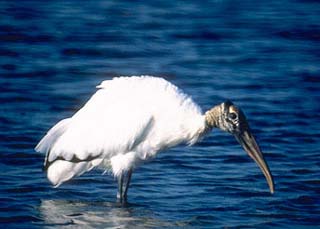
The endangered wood stork (Mycteria americana) inhabits the mangrove swamps and estuaries of the Florida Bay. Decline of this species is primarily due to loss of feeding habitat caused by man’s alteration of wetlands.
For more information on the numerous threatened and endangered species in Florida, visit the Florida Fish and Wildlife Commission’s List of Florida’s Imperiled Species.